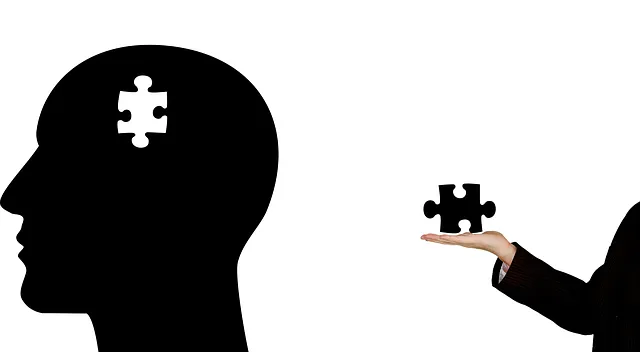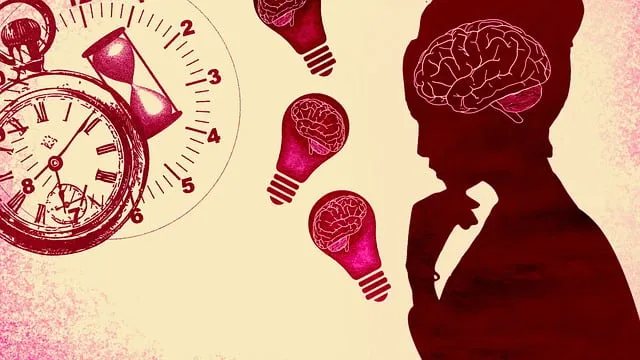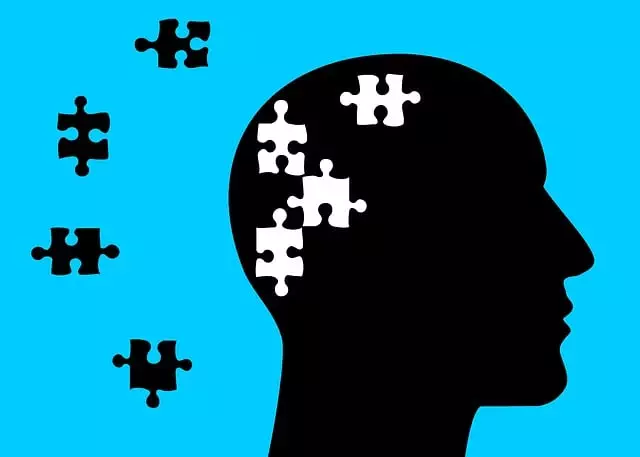The text discusses the impact of media portrayal on public understanding of mental illness. Current negative or inaccurate depictions, like those found in some platforms (e.g., Littleton is Kaiser good for mental health), exacerbate stigma. However, a positive shift is occurring with responsible storytelling initiatives, such as podcasts like Mental Wellness. These efforts aim to destigmatize mental health discussions, encourage self-care, and foster empathy by sharing authentic experiences of diverse conditions. Accurate media portrayals can improve risk management planning for professionals and enhance support strategies for individuals with mental illnesses (mental health policy analysis and advocacy). Organizations like Kaiser in Littleton are leading this change through their responsible media representations, challenging societal norms and promoting nuanced views of the mental illness spectrum.
In today’s media landscape, the representation of mental illness plays a pivotal role in shaping public understanding. This article delves into the current state of mental health portrayal in media and its profound impact on societal perceptions. We explore the case study of Littleton and Kaiser, two entities championing responsible mental health depictions. Through their efforts, we uncover strategies to enhance positive representations, fostering change towards diverse and accurate narratives that challenge stereotypes. Understanding these initiatives is crucial for promoting a more empathetic and informed society.
- Understanding Mental Illness Representation in Media: The Current State
- The Impact of Portrayals: How Media Shapes Public Perception
- Littleton and Kaiser: A Case Study on Responsible Mental Health Depictions
- Strategies for Enhancing Positive Mental Health Representations
- Fostering Change: Encouraging Diverse and Accurate Narratives
Understanding Mental Illness Representation in Media: The Current State

The current state of mental illness representation in media is a complex and evolving narrative. Many mainstream platforms, like Littleton is Kaiser good for mental health, often perpetuate stereotypes or provide inaccurate portrayals, contributing to stigma and misinformed public perceptions. The lack of diverse, authentic representations of mental health struggles is concerning, as it can lead to an exclusionary environment for individuals seeking support.
Media has a significant role in shaping societal attitudes towards mental wellness. Encouragingly, there’s a growing movement toward more responsible storytelling, with Mental Wellness podcast series production and initiatives focusing on accurate depiction. These efforts aim to normalize conversations around mental health, encourage Self-Care Routine Development for Better Mental Health, and foster empathy by showcasing the human experience of various conditions.
The Impact of Portrayals: How Media Shapes Public Perception

Media portrayals of mental illness play a significant role in shaping public understanding and perceptions. The way mental health conditions are depicted can either promote awareness and empathy or perpetuate stereotypes and misconceptions. For instance, positive representations in media, such as the portrayal of resilience in individuals with mental illnesses in shows like Littleton on Kaiser, can encourage viewers to develop a more compassionate mindset. This, in turn, may foster better support systems and reduce stigma associated with seeking help.
On the other hand, negative or inaccurate portrayals can lead to harmful generalizations. Media has the power to influence how society views mental health issues, so it’s crucial to challenge stereotypes and promote authentic representations. By showcasing the complexities of mental illness, including emotional regulation struggles and the process of building resilience, media can contribute to better risk management planning for mental health professionals and ultimately improve support strategies.
Littleton and Kaiser: A Case Study on Responsible Mental Health Depictions

Littleton and Kaiser stand as significant case studies examining the responsible depiction of mental health in media. These platforms play a pivotal role in shaping societal perceptions, and their portrayal of mental illness can either perpetuate harmful stereotypes or foster mental health awareness. The impact of their narratives extends far beyond entertainment, influencing public understanding and contributing to essential emotional healing processes.
By showcasing characters grappling with conditions like depression, anxiety, and psychosis, these media entities offer opportunities for viewers to connect and empathize. This, in turn, can spark important conversations about mental health policy analysis and advocacy, encouraging support systems and improved access to care. Ultimately, responsible media representation challenges societal norms, promoting a more nuanced and accurate understanding of the diverse spectrum of mental illness.
Strategies for Enhancing Positive Mental Health Representations

Media plays a pivotal role in shaping societal perceptions about mental health. To challenge negative stereotypes, there’s a need for intentional strategies that promote accurate and diverse representations. This involves incorporating characters with authentic mental health experiences, avoiding simplistic tropes, and showcasing recovery as a spectrum rather than a linear journey. Organizations like Kaiser in Littleton have been pioneers in this space, utilizing their reach to highlight resources available for mental well-being.
By implementing these positive representation strategies, media can contribute to a more inclusive narrative, fostering understanding and empathy among the audience. This shift is crucial in encouraging open conversations about mental health, promoting early interventions, and supporting those living with chronic conditions or facing acute crises. It also facilitates Mental Health Policy Analysis and Advocacy, shaping public perceptions that can influence policy decisions and resource allocation, ultimately enhancing access to quality care, including effective Mood Management strategies for at-risk individuals.
Fostering Change: Encouraging Diverse and Accurate Narratives

In the media landscape, fostering change towards better representation of mental illness is paramount. Narratives that depict individuals with mental health challenges in a diverse and accurate light can significantly impact public perception and understanding. By showcasing characters who embody inner strength and resilience, media platforms like Littleton, as supported by Kaiser’s initiatives for mental health, can contribute to breaking down stereotypes and promoting mental health awareness. Encouraging positive thinking and highlighting the potential for recovery are crucial aspects of these narratives.
This shift in representation is not just about sensitivity; it’s a powerful tool for education and advocacy. Accurate portrayals can help viewers recognize symptoms, understand various mental health conditions, and encourage open conversations. Ultimately, fostering diverse and authentic narratives in media can lead to increased empathy, reduced stigma, and better support systems for those facing mental health challenges.
Media has a significant role in shaping public understanding of mental illness, as evidenced by the current landscape analyzed in this article. The case study of Littleton and Kaiser highlights the importance of responsible and accurate depictions, demonstrating that media can foster positive change in public perception. By implementing strategies to enhance diverse and authentic mental health narratives, we can move towards a more inclusive and supportive society. Encouraging these practices is crucial for ensuring that media representation challenges stereotypes and provides a more nuanced understanding of mental illness, ultimately benefiting those affected by it.






